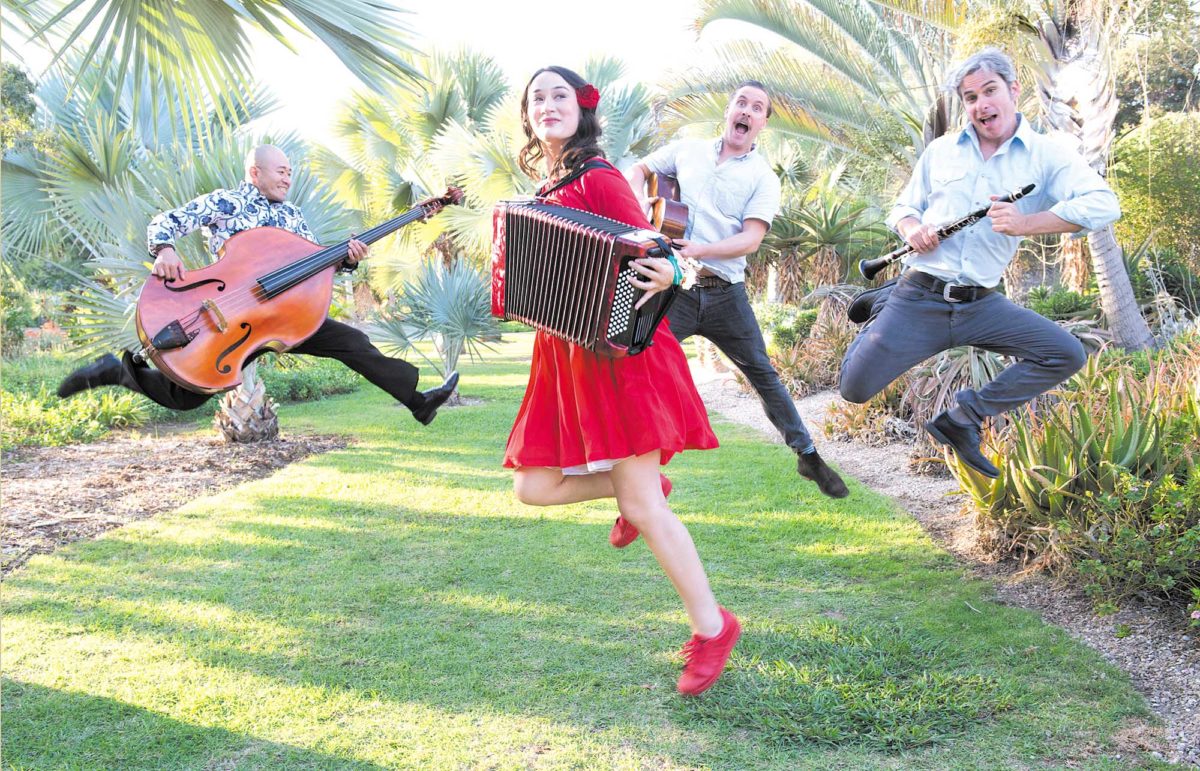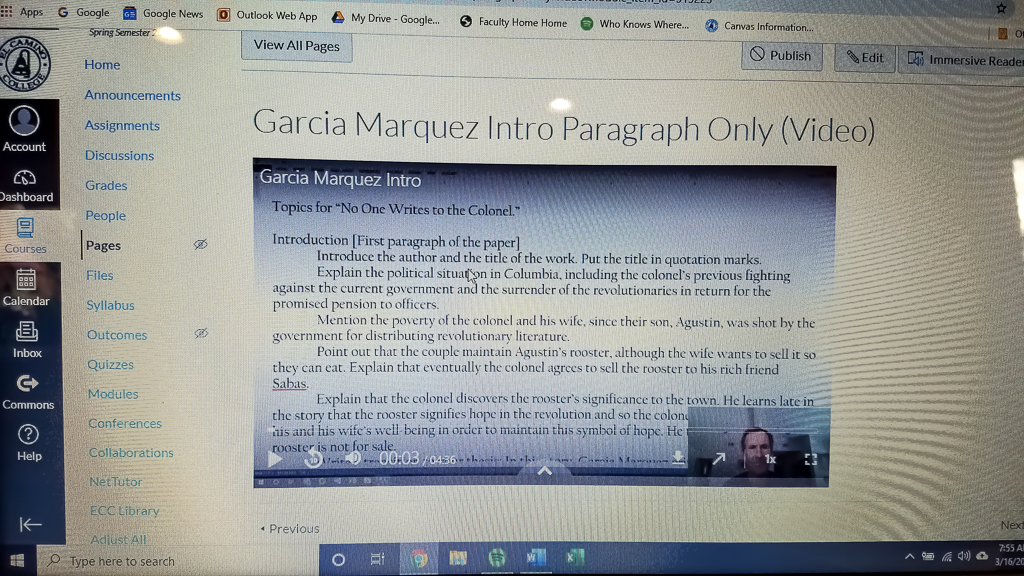El Camino College moves classes online to protect students from coronavirus

Jessica Fichot and her quartet is one of the many El Camino College performances canceled because of the novel coronavirus. They were to have performed Friday, March 13. Photo courtesy of El Camino College.
Teaching in the time of coronavirus
Sunday morning, El Camino College English professor Tom Cody spent four hours preparing an online lecture for his students about the short story “No One Writes to the Colonel.” The author is Nobel Prize winning Columbian novelist Gabriel Marquez Garcia, whose most famous novel, ironically, is “Love in the Time of Cholera.”
Last Thursday, El Camino College announced that its 24,000 students, including Cody’s four English classes, would be taught online to protect students from the novel coronavirus. Teachers were given until this Friday to have their online classes ready.
Cody has taught at El Camino for nearly three decades, but Sunday was the first time he had ever prepared an online class. He worked on it in his home office in front of a computer with two monitors. On one monitor he recorded himself speaking. On the other he displayed his notes.
He worked with a software program called Canvas, which El Camino adopted three years ago. He and his fellow teachers commonly use Canvas for posting assignments and grades and giving tests. But few use it to deliver classroom lectures.
“It took me four hours to get 15 minutes of video. A lot of that time was spent thinking how to be clear and concise without looking like a boring fool,” Cody said. “People don’t understand how time consuming it is to prepare an online lecture.”
His biggest problem wasn’t technological, it was pedagogical.
“After I enter the classroom, the first thing I ask my students is, ‘What did you think of the book?’ If they tell me there is something they don’t understand, I’ll start teaching from there. I need their feedback. And they need one another’s feedback so they don’t feel like they’re the only ones who don’t understand something. For learning, this is very important.”

Starbucks announced this week it is removing its tables and only offering “grab and go” service in response the novel coronavirus. Photo
Though Canvas allows for real time exchanges between teachers and students, Cody and other El Camino professors can’t use that feature because students must be allowed to view the online classes at different times, depending on when they have online access. Students who don’t have computers or internet access are expected to go to a library or coffee shop, though with County libraries closed and Starbucks not allowing customers to sit at tables, access may be difficult for some students.
“I understand and the students understand the school had to do it. But teaching online is really going to be an adjustment,” Cody said.
For his honors class, Cody is teaching “Civilization and its Discontents,” by Sigmund Freud. “Imagine preparing a video for that. I’m petrified,” Cody said. ER

A screen capture of El Camino English Professor Tom Cody’s first attempt at online teaching.
Limitations to hard sciences on line
Speaking as a professor of the hard science of biology, Dr. Darcie McClelland said, “I’m thankful we live in an age where technology makes it possible to deliver quality instruction online.”
Speaking as a practitioner of the soft science of politics, the El Camino College Academic Senate President said, “For homeless, foster children, those living with insecure home situations, it’s not reasonable to assume they have a quiet place to study at a computer with high speed internet.”
As of Monday, the El Camino College library was remaining open. But most other places where poor students could have worked online have been closed, including public libraries and Starbucks.
Even science students with easy online access face a significant obstacle, McClelland explained.
“There is a reason there are no fully online science classes. Inherent to becoming a scientist is doing experiments in the lab, making mistakes and learning to solve them. My students won’ t be able to do that this semester.”
Nursing and cosmology students, she pointed out, are required to complete lab work to obtain state licenses.
McClelland plans to post her lectures and related videos and to hold virtual office hours using the school’s Canvas course management software.
“I won’t be posting videos where I just read the exercises,” she said.
“Our students and teachers realize we are in unprecedented circumstances. We’re bonding as best we can. But I would be lying if I said we’re not concerned. ER

